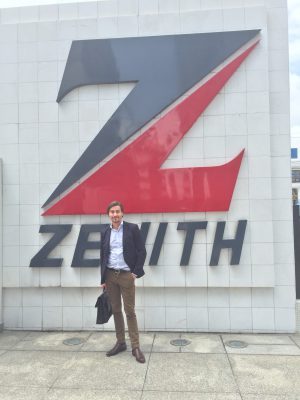THE FUND
The fund rose 6.4% in January, better than the benchmark, MSCI EFM Africa ex South Africa Net Total Return Index, which rose 1.4%. In January, Ghana (+16%) emerged as the best market in Africa followed by Nigeria (+8%). The worst performers were BRVM, a joint West African exchange including Senegal, Benin, and Ivory Coast among others, which fell (8%) and Tanzania (-6%). The Swedish Krona strengthened 4.5% in January decreasing the SEK return in the fund.
Our holdings in Egypt and Nigeria had a strong start to the year and contributed the most to the outperformance in January relative the benchmark. The underweights in Morocco and Kenya were the main negative contributors. On a sector level, the fund gained from our holdings in Financials and Consumer Discretionary, while we lost on underweights in Telecom and Materials.
We have seen significant inflows to the fund, partly as a result of a strong performance, and we added to existing holdings. One new company we have invested in is an export-oriented clothing manufacturer. In the past, the company was too dependent on just a few customers but following the devaluation in 2016, it has seen an increase in its products as well as in capacity and its customer base. We expect more to come and deem the current valuation of 6-7x forward earnings as attractive. (All changes in SEK).
THE MARKET
The African markets started 2018 positively with MSCI EFM Africa xSA rising 1.4% as compared to other Frontier Markets (MSCI FMxGCC) rising +1.7% in January. As the Swedish Krona strengthened 4.5% returns in USD were proportionally higher.
The inflation in Egypt fell as expected, raising hopes that the central bank will start cutting rates at its next meeting for the first times since the devaluation in November 2016. There is, however, talk that the current interest rate level will be kept for longer than expected to continue attracting foreign capital to the bond market and to further build the currency reserve. Barring any unexpected changes, President al-Sisi is expected to secure another term in the March presidential elections. This is even more likely as potential opponents seem to be pressured into withdrawing. Nigeria continues to perform well on the back of rising oil prices trading at one point above USD 70/bbl during the month, convincing more investors that the economic recovery will continue. The rising oil price increases government revenue and adds to the currency reserves (now said to be above USD 42bn). We have also seen foreign investors return after a gap of several years. In general, international investors continue to be underweight but we believe this will become less common as the economic recovery continues. Nigeria is set to issue another 2.5bn worth of Eurobonds during the first quarter to refinance an older loan, in local currency, at a lower rate. Debt servicing has captured a large share of government expenses, which for good reason has been cause for concern both domestically and externally. Approximately 60% of the government’s budget is spent on interest payments, which is unsustainable in the long run. Having said that, the problem is not the amount of debt but rather the narrow revenue base i.e. oil-related goods still comprise 80-90% of government revenue. Progress on expanding the tax base is ongoing but slow. South Africa’s’ president Zuma finds himself more likely to be removed early. The newly elected ANC-leader Ramaphosa has in a short period of time gained large support both at home and abroad thanks to public statements e.g. the 2018 World Economic Forum at Davos. There is speculation of an early retirement, maybe as early as quarter 1. Zuma strengthened the South African Rand significantly. It would be a step in the right direction to remove leaders linked to corruption but, for a new president, the task (unemployment, budget deficit etc.) at hand cannot be underestimated. The interest rate cap in Kenya looks to stay for the rest of the year. Partly because the removal process takes time, partly because it is a political decision and not an economic one. To date, there has been no political or public will to remove the cap, however harmful it may be for the economy. We continue to see more of a downside than upside in Kenya as GDP growth prospects and company profit expectations are more likely to be revised downwards, which is not reflected in today’s valuations.


